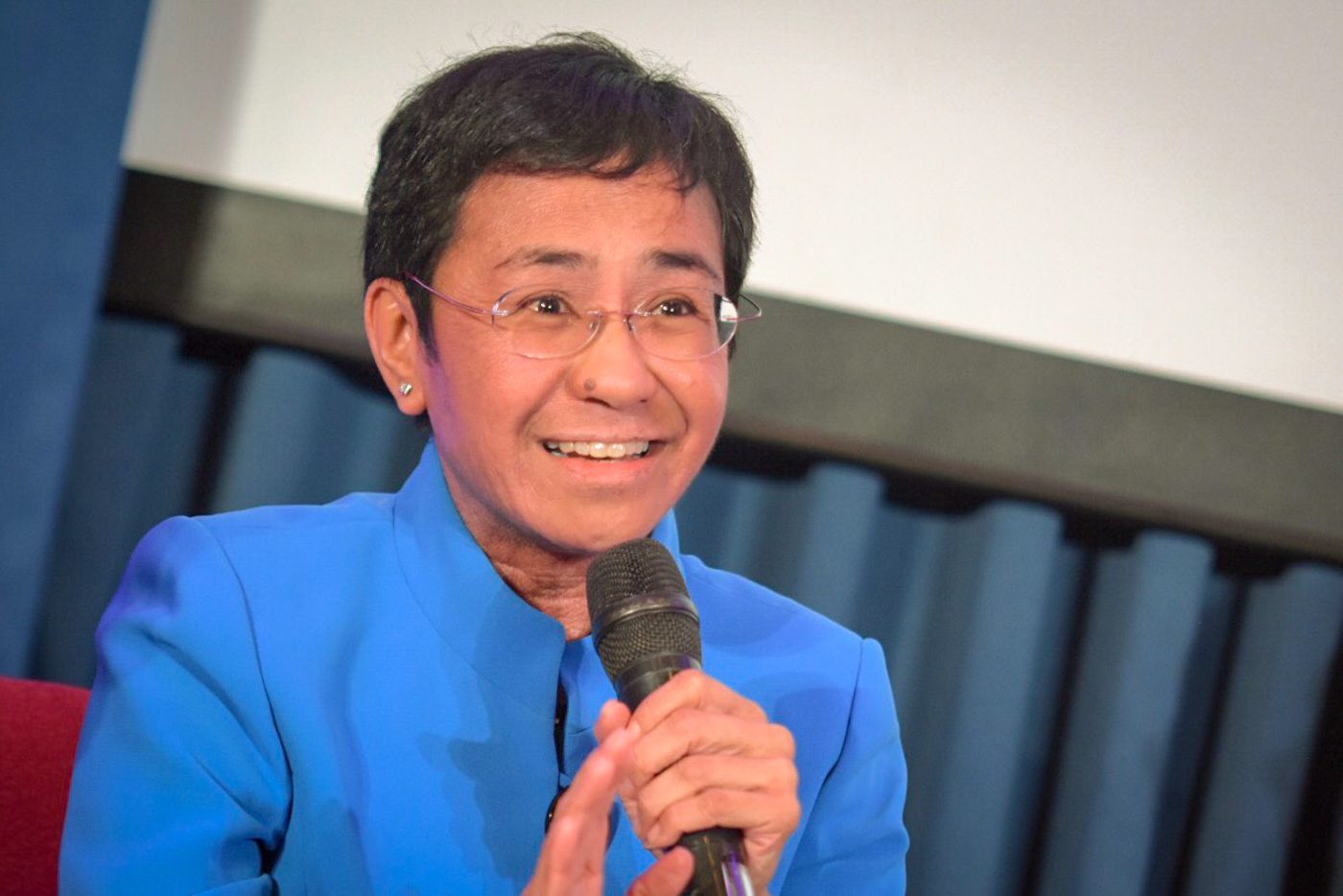SUMMARY
This is AI generated summarization, which may have errors. For context, always refer to the full article.

MANILA, Philippines – Rappler CEO Maria Ressa joins a select group of journalists, academics, and free-speech advocates from across the globe in the “Civil Council,” an assembly of experts safeguarding and helping hone the code of ethics for a new journalism platform called “Civil.”
Ressa is among the first 5 to be part of the council, as announced by Civil Foundation CEO Vivian Schiller. There will be about 15 in the council, who will ensure that Civil’s code of ethics and behavior known as “Civil Constitution” will be “the rule of the road for all activity.”
Civil is a new journalism platform powered by blockchain, the same technology that powers Bitcoin and the many other cryptocurrencies today but whose underlying mechanics can be molded to fit different functions.
In Civil’s case, that’s the ability to form a network with one universal digital ledger or archive on which every article is recorded, including all the changes to it, permanently. (READ: Blockchain technology: A beginner’s guide)
Unlike most websites today, there is no single server containing the articles. Instead, the articles are distributed across and constantly verified by the network.
The network, as in any blockchain system, is made up of user computers, each contributing processing power to maintain the network.
In the ‘Civil Council’, Ressa joins Emily Bell, the founding director of the Tow Center for Digital Journalism; Sue Gardner, a Canadian journalist who was the executive director of the Wikimedia Foundation for 7 years; Raju Narisetti, the former CEO of the Gizmodo Media group; and Ellen Goodman, the co-director and co-founder of the Rutgers Institute for Information Policy & Law.
Decentralization of information control
Civil co-founder Matt Coolidge wrote in his explainer of Civil that with this blockchain-enabled trait, articles cannot be suddenly taken down “at the whim of a billionaire or limited group of actors overseeing a centralized server on which the entirety of a publication’s data lives.”
“No single party is in control,” he said.
It’s this “decentralization” of power and control that has always been a hallmark of blockchain networks – even though the technology is still learning to walk these days – and could prove to have benefits to an industry that is prone to the abuses of certain actors.
Civil also aims to fix the ad-driven business model of traditional publications. It will take out advertisers, publishers, and other third-parties out of the equation, Coolidge wrote.
“We believe that the ad-driven business model is slowly killing good journalism – which is itself a critical foundation for free, democratic societies,” he noted.
In lieu of the ads, the platform will provide the public a way to fund or commission journalistic stories. The funding themselves will presumably be recorded on Civil’s ledger, in keeping with its transparency initiatives and this enabling nature of blockchain.
Civil is trying to sell a maximum of $32 million in “tokens,” which its owners can use in a marketplace for media ventures, according to the Wall Street Journal.
Decentralization is also an integral part in the way Civil is governed, Coolidge said.
Civil will be governed by the very readers and the journalists themselves. There will be no “central authority” in the network. Every participant will have “a variety of enforceable voting rights” if an issue occurs.
Civil gives an example: “If there is a dispute – i.e. if someone has committed violation of ethics, people can challenge an action and a vote will occur, resulting in a devision that will be enforceable across the entire platform.” (These rules and ethics are contained in the “Civil Constitution” that’s currently being drafted, and can be accessed here.)
2019 goal
This leads back to the “Civil Council.” The council will be providing feedback, and will help synthesize the community’s inputs to the platform’s constitution for at least until the second half of 2019.
Coolidge described the constitution as “the document that holds us all accountable” and “the basis for determining what does – and does not – constitute ethical journalism on Civil.
By the 2nd half of 2019, Civil hopes that the platform would have become self-managing, with the council stepping back from its role as formator and becoming a “court of appeals” in response to community action.
Civil will be launching its “Civil Registry” soon where individuals, both journalists and non-journalists, can apply to set up a newsroom on the platform.
Civil runs on the Ethereum blockchain platform. – Rappler.com
Add a comment
How does this make you feel?





![[WATCH] Rappler Live Jam: HORI7ON](https://www.rappler.com/tachyon/2024/04/live-jam-hori7on.jpg?resize=257%2C257&crop_strategy=attention)
![[WATCH] Rappler Live Jam: Any Name’s Okay](https://www.rappler.com/tachyon/2024/04/live-jam-1280.jpg?resize=257%2C257&crop=412px%2C0px%2C1080px%2C1080px)
![[WATCH] Rappler Live Jam: YARA](https://www.rappler.com/tachyon/2024/04/YARA-live-jam-ls.jpg?resize=257%2C257&crop=466px%2C0px%2C1080px%2C1080px)
![[WATCH] Rappler Live Jam: Jose Miguel](https://www.rappler.com/tachyon/2024/04/rappler-live-jam-LS.jpg?resize=257%2C257&crop=332px%2C0px%2C1080px%2C1080px)
![[WATCH] Rappler Live Jam: HEY JUNE!](https://www.rappler.com/tachyon/2024/03/hey-june-live-jam-ls.jpg?resize=257%2C257&crop=477px%2C0px%2C1080px%2C1080px)


There are no comments yet. Add your comment to start the conversation.